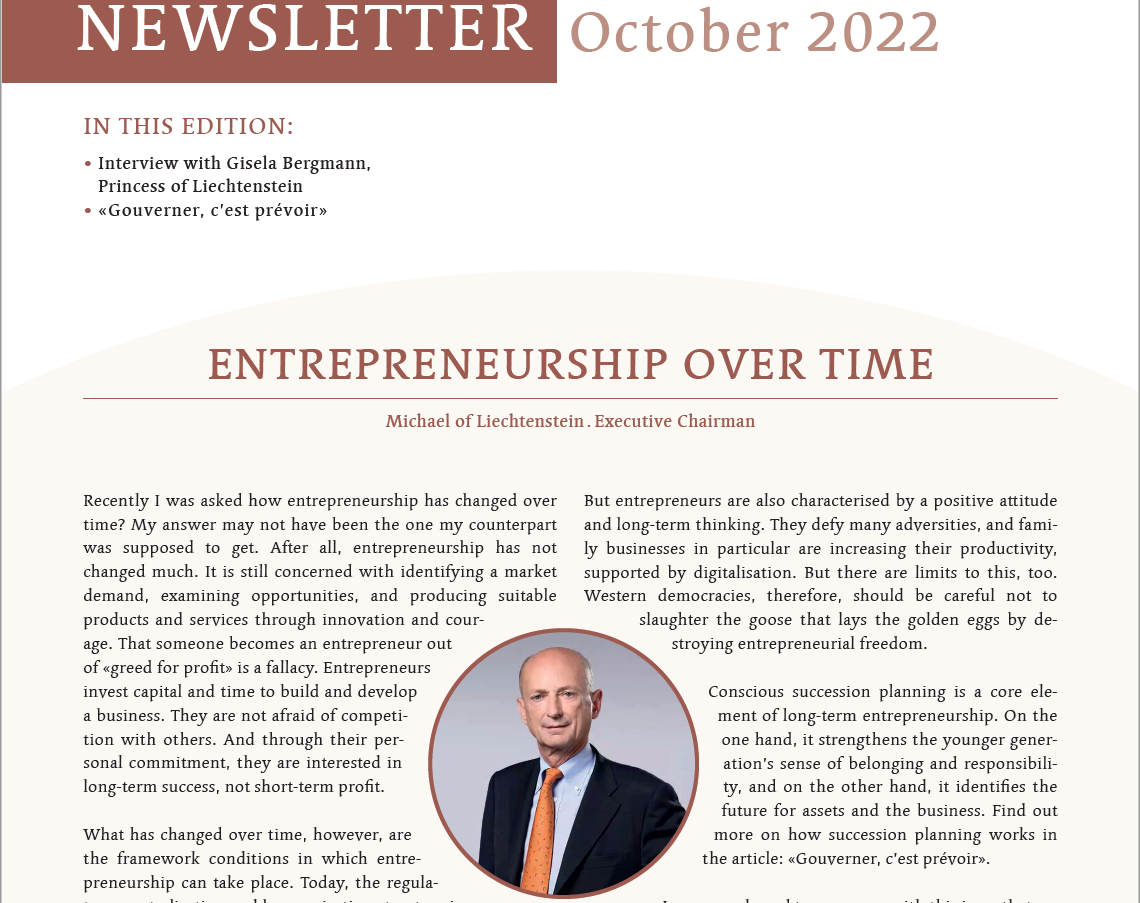
Recently I was asked how entrepreneurship has changed over time? My answer may not have been the one my counterpart was supposed to get. After all, entrepreneurship has not changed much. It is still concerned with identifying a market demand, examining opportunities, and producing suitable products and services through innovation and courage. That someone becomes an entrepreneur out of «greed for profit» is a fallacy. Entrepreneurs invest capital and time to build and develop a business. They are not afraid of competition with others. And through their personal commitment, they are interested in long-term success, not short-term profit.
What has changed over time, however, are the framework conditions in which entrepreneurship can take place. Today, the regulatory, centralisation and harmonisation structure is so tightly knit that it hinders entrepreneurial competition and makes innovation more difficult. However, competition is essential for improvement and innovation, and a large number of small- and medium-sized enterprises are the basis for a flourishing economy. Unfortunately, this is not understood by political and supranational organisations. And thus, entrepreneurs and citizens are degraded to mere tax substrates.
But entrepreneurs are also characterised by a positive attitude and long-term thinking. They defy many adversities, and family businesses in particular are increasing their productivity, supported by digitalisation. But there are limits to this, too. Western democracies, therefore, should be careful not to slaughter the goose that lays the golden eggs by destroying entrepreneurial freedom.
Conscious succession planning is a core element of long-term entrepreneurship. On the one hand, it strengthens the younger generation’s sense of belonging and responsibility, and on the other hand, it identifies the future for assets and the business. Find out more on how succession planning works in the article: «Gouverner, c’est prévoir».
I am very pleased to announce with this issue that we at Industrie- und Finanzkontor have arranged the company’s succession and Princess Gisela has taken over the operational management as of the beginning of 2022. In the following interview you will get a first impression of Princess Gisela. In our role as managing directors, Count Francis von Seilern-Aspang and I will continue to be active in relationship management and to support the management team at a strategic level.
Michael of Liechtenstein . Executive Chairman